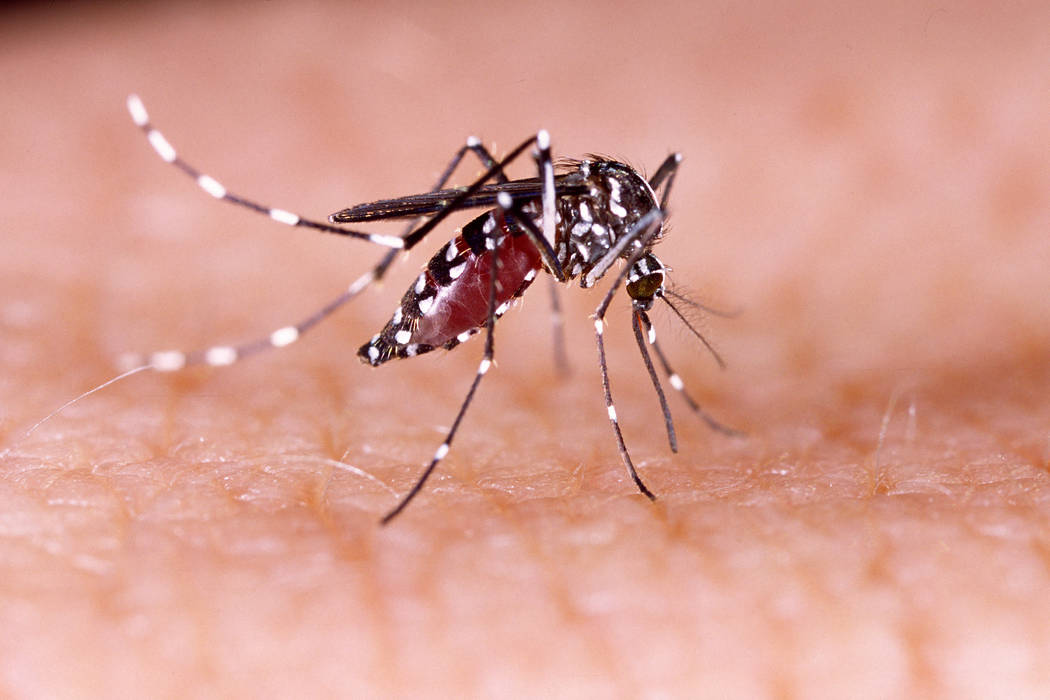West Nile virus cases rise as health district declares outbreak
The number of cases of West Nile virus in Clark County this season has risen to a record 28, prompting the Southern Nevada Health District to declare an outbreak of the mosquito-borne illness.
The count is the highest since the virus was first detected in the state in 2004. Seventeen of the 28 cases have been the neuroinvasive form of the disease, which can be fatal.
The Health District’s Mosquito Surveillance Program has identified both West Nile and St. Louis encephalitis virus-positive mosquitoes throughout Southern Nevada. So far this season West Nile virus-positive mosquitoes have been found in 39 ZIP codes, and mosquitoes testing positive for the St. Louis encephalitis virus have been found in 15 ZIP codes. More than 38,600 mosquitoes have been submitted for testing this year.
This season 19 percent of mosquitoes have tested positive for West Nile or St. Louis encephalitis virus. Last season less than 0.1 percent tested positive for the virus. Updated reports on mosquito activity and human case counts are available on the Health District website each week at www.southernnevadahealthdistrict.org/programs/mosquito-surveillance/weekly-arbovirus-update/.
“The West Nile virus activity we are seeing in our community is a serious public health concern,” said Dr. Joe Iser, chief health officer of the Southern Nevada Health District. “I urge people to protect themselves from mosquito bites by using repellents whenever they are outdoors and to make sure they are eliminating standing water from around their homes.”
West Nile virus is preventable. The disease is transmitted by the bite of an infected mosquito. The illness is not spread person to person. Eight out of 10 people with the virus will have no symptoms or very mild symptoms of illness. About one in five people will develop mild symptoms that include a fever with other symptoms such as headache, body aches, vomiting, diarrhea or a rash. Most people with this type of West Nile virus recover completely, but fatigue and weakness can last for weeks or months. About one in 150 people who are infected develop a severe illness affecting the central nervous system such as encephalitis (inflammation of the brain) or meningitis (inflammation of the membranes that surround the brain and spinal cord).
The most effective way to keep from getting infected with West Nile virus and other mosquito-borne illnesses is to prevent mosquito bites. In addition to using Environmental Protection Agency (EPA)-registered insect repellents containing DEET, Picaridin, IR3535, Oil of lemon eucalyptus (OLE), or 2-undecanone, the health district recommends wearing light-colored, long-sleeved shirts and pants, and taking steps to control mosquitoes in and around the home. Eliminate breeding sources, including non-circulating ponds, “green” swimming pools, and accumulated sprinkler runoff, which support mosquito breeding. For more tips, go to the Health District’s Mosquito Breeding Prevention website.
Mosquito activity can be reported to the Health District’s Mosquito Surveillance Program at 702-759-1633.
Contact Mary Hynes at mhynes@reviewjournal.com or 702-383-0336. Follow @MaryHynes1 on Twitter.

















